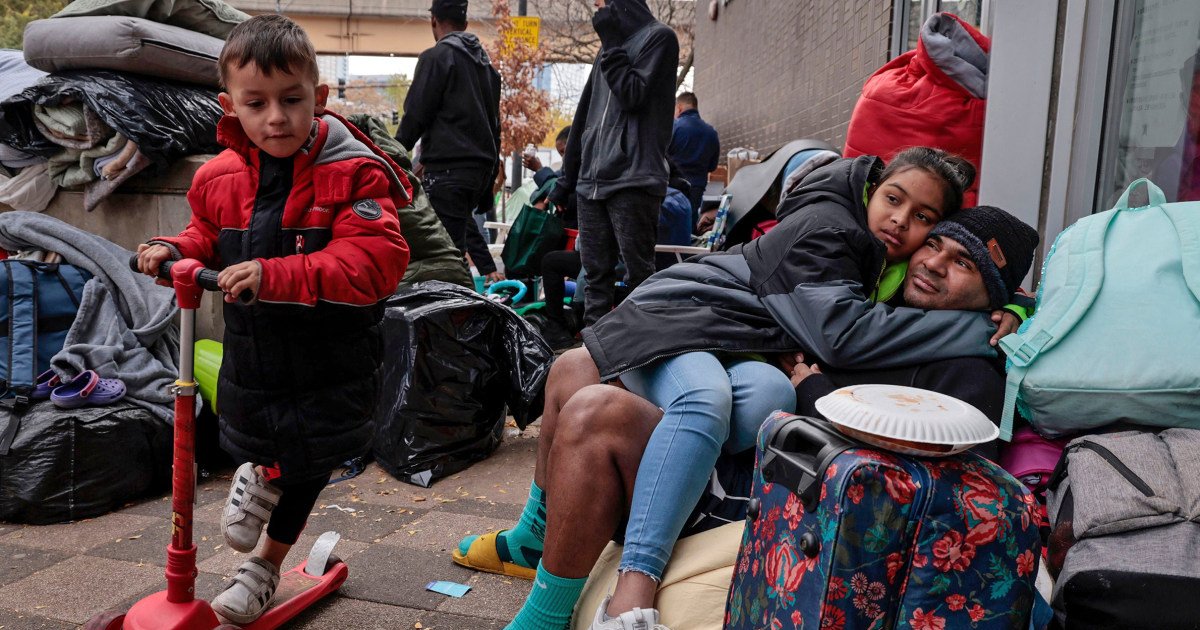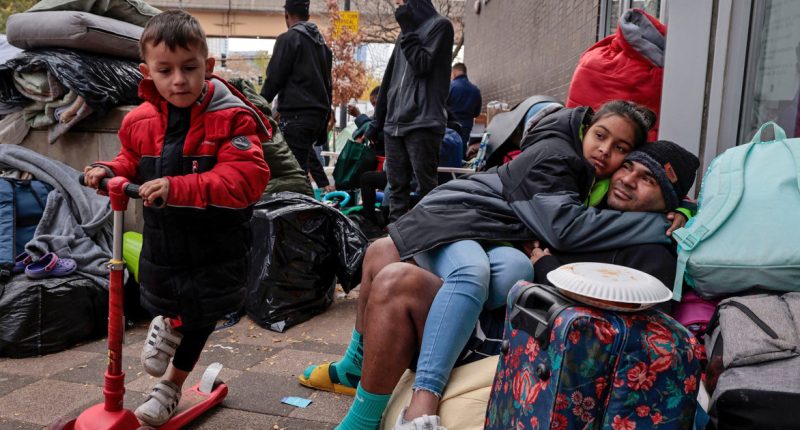
“This is like a gut punch for me,” the Rev. Kenneth Phelps, who helps migrants find housing and is involved in several programs to assist them transition to life in Chicago, said of the reduction in rent assistance. “That binds our hands so much.”
Phelps said it had already been difficult to find landlords and property managers willing to rent to migrants with up to six months of rental assistance, as most asylum-seekers lack documentation usually provided during the rental process and do not yet have work permits. He feared that reducing the program would make the process more daunting.
“I feel very defeated. There’s no way the city is going to be able to keep its promises,” Phelps said.
Ayala-Bermejo said a 60-day limit for shelter stays would require “intensive case management” to make sure that migrants don’t lose out on housing opportunities and social services.
“We have to make sure that we’re not tossing out all the good that has been invested in that individual, in that family, that will be lost if they’re just hitting the ground and adding to the unhoused,” she said.
She also said the investment from the city, state and federal government should follow the migrants beyond housing, “to work authorization, work development, and work opportunities, so that they can sustain themselves.”
“You cannot then pull the carpet from under them once they have a job,” she said. “You have to continue to invest in the case management and support services that are going to help them stay employed, and then continue to pay their rent and not turn over and join the unhoused population.”
But Matt DeMateo, the chief executive officer of New Life Centers of Chicagoland, a nonprofit that works with the state on resettlement, said that while the reduction to three months of rental assistance may provide a challenge in finding housing, it could ultimately allow more migrants to benefit from the program.
DeMateo believes another aspect of the state’s plan — submitting 11,000 applications for work authorization and temporary protected status by February — also will improve the migrant crisis.
“Once that opens up, people can get on a stable path,” he said. “With all of those investments, the idea is how do we better the whole system, so we can get through this and get past these bottlenecks.”
The state said last week that since August 2022, some 9,000 migrants have been resettled — either by being placed in permanent housing or with relatives — both inside the state of Illinois and in other states.
Oscar Peñalver Sanchez hopes to soon be among them. After living for about a year in a shelter with more than 150 other migrants, he recently moved into his own apartment.
“It’s a huge relief because it’s difficult to stay in the shelters for so long,” he said in Spanish, but added that he was grateful to have had “somewhere to sleep and lay our heads.”
He is in the process of applying for a work permit, which he hopes will put him on track to becoming financially independent.
“I want to work and face life head on,” he said.
Source: | This article originally belongs to Nbcnews.com










